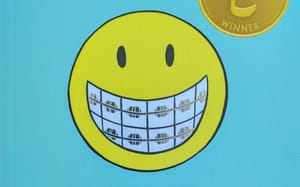The literary festival at Hay-on-Wye is in mid-flow. For unfamiliar readers, Hay is a Welsh town famous for being home to many second-hand bookshops (aka used book stores). It has over thirty bookshops [Wikipedia].
Robert McCrum writes about this, and other, literary festivals in his retrospective review of ten years of books and publishing in Sunday’s Observer:
Hay’s tipping point came in 2001 with the visit of ex-US President Bill Clinton. With his genius for infectious slogans, Clinton declared Hay ‘the Woodstock of the mind’. Exactly! After Clinton’s barnstorming visit (who could ever forget the way he worked the crowd?), literary festivals became the new rock’n’roll. Soon, there was hardly a town in Britain that did not hold some kind of literary festival. [A thriller in ten chapters | By genre | guardian.co.uk Books]
McCrum is writing as he steps down as literary editor of the Observer and the piece is a mix of interesting comment and querulous plaint about markets and commerce: perhaps he should read New Grub Street. He suggests that the years surrounding the transition from the twentieth century to the next have been the most revolutionary for the world of “books and writing’ since ‘William Caxton set up his printing shop in the precincts of Westminster Abbey”.
Heaven or hell? It’s too soon to say. This is a story whose outcome remains mysterious. There’s no doubt that this transitional decade from the 20th to the 21st century has been decisive, but no one knows when or how it will end. One thing is certain: the appetite for print is growing. In 1996, there were between 60,000 and 100,000 new titles in the UK each year. By 2007, it was pushing 200,000. That’s the biggest annual output of any country in the Western world, turning over some £4bn a year. [A thriller in ten chapters | By genre | guardian.co.uk Books]
In addition to festivals, he talks about the emergence of Amazon, the JK Rowling phenomenon, ebooks, the rise of prizes, the impact of Oprah and of Richard and Judy, and discusses some writers – Malcolm Gladwell, Ian McEwan, Zadie Smith – as indicators of trends.
He also notes the influence of blogs:
Book blogs such as emergingwriters.typepad.com, maudnewton.com and syntaxofthings.typepad.com now have such power and influence that a publisher’s editor in Manhattan is likely to advise a new novelist not that they will be reviewed in the New York Times but that they will be covered on curledup.com. This, according to Trish Todd of Simon & Schuster, ‘is the wave of the future’. [A thriller in ten chapters | By genre | guardian.co.uk Books]
Discussion in this section causes his Observer colleague, John Naughton, to remark:
Sigh. This is old-world elitist newspaper writing. It assumes that one’s readers will accept an Olympian stance simply because one has a job on a posh newspaper. It won’t wash any more. [Memex 1.1 » Blog Archive » A world turned upside down]



